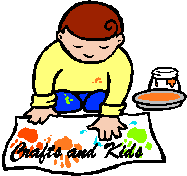Games | Things to Do | Kids Only
![]()
Kenya is sometimes referred to as the ¨cradle of mankind¨ as a result of the now famous digs of the Leaky family. Their finds included humanoid skulls dating back 2½ million years. These discoveries radically altered theories about the origin of person kind.
The diversity of tribes and languages in Kenya is clear evidence that throughout the centuries many people have passed through or settled in its lands.
While this migration and settlement was going on within the interior Muslim traders were visiting the coast from as early as the 8 CE. These traders came mainly from the Arabian peninsula and from Persia (Iran). Their aim was to trade and settle rather than
colonize. They would trade cloth, wheat, glassware in return for ivory, tortoise shells and rhino horn. As this trade extended evidence shows that even the Chinese visited Kenyas shores. Some inter-marriage
occurred between the Africans and Arabs resulting in Islamic influenced towns along the east coast. Life was generally peaceful....
The Spanish were occupied with colonizing the Americas while the Portuguese were determined to break the Ottoman Empires hold on trade with the Far East. The Portuguese raped the East Coast in what was to become common
practice among the ruthless European imperialists for the next 4 centuries. Colonial life, as expected, was harsh for the inhabitants. The beginning of the end for the Portuguese came in 1698 when Fort Jesus fell to the Arabs. Luckily for the Kenyans the Portuguese left for good in 1720.
The Arabs remained in control of the East Coast until the arrival of the next set of ruthless imperialists, the Germans and the British in the late 19th Century. Constant quarrelling between the Arabs in East Africa led to the Sultan of Oman sending forces to the Kenyan coast to subdue them. In reply the ruling Mazruis Clan asked the British for help. The British flag was raised over Fort Jesus for the next three years. After this time rule was handed back to Said.
The rest of Africa continued to be carved up by the Imperialist armies of Europe and Kenyas turn was soon to come. The British and Germans agreed their spheres of influence in East Africa, and in 1880 the time to 'conquer' the interior, which had previously been home to proud warrior tribes had come. Years of fighting between rival tribes had left them weakened and in true colonial style the British stepped in and signed a treaty that enabled them to build the Kenya-Uganda rail road. The halfway point on this rail road lay on swampy ground and a small town called Nairobi sprung up.
With the railroad in place white imperial settlers began to move into the fertile highlands north of Nairobi, violently expelling the Masaii from their lands without compensation. It was not only the Masaii who suffered at the hands of the brutal white colonialists, the Kikuyu amongst others also faired badly.
World War I interrupted settlement of whites which by this time numbered 3000-4000. Some small groups of British settlers at this timed crossed into German Tanganyika in the hope to fight the Germans. However, after the war control was handed over to the British of Tanganyika. By 1950 there were upwards of 80,000 colonialist in Kenya.
Continual abuse and ill-treatment of the true Kenyans by the Europeans led to armed rebellions by the various tribes. The main opposition group was the Kenya African Union (KAU) headed by Harry Thuku and then by James Gichuru. Later the legendary Kenyatta took control. Another active group was the Mau Mau who were instrumental in changing opinion against the settlers through guerilla war techniques. KAU later became Kenya African National Union (KANU). After elections KANU regained control and Kenya gained
Independence on the 12 December 1963. Kenyatta asked the whites to remain and help build a new Kenya and he succeeded.
In modern times Kenya has slipped down the slippery path that most African countries have. A military coup in 1982 shook the country and its moral. The country is also riddled by corruption scandals. The situation for Europeans and Asians is also getting worse.
|
Copyright © 2001-, Terry Muse Revised: April 2, 2002 URL: http://crafts_and_kids.tripod.com/ http://geocities.com/mounthollynj http://seaside_park_nj.tripod.com http://westlake_village_md.tripod.com Contact: Terry J. Muse |
 |
 |